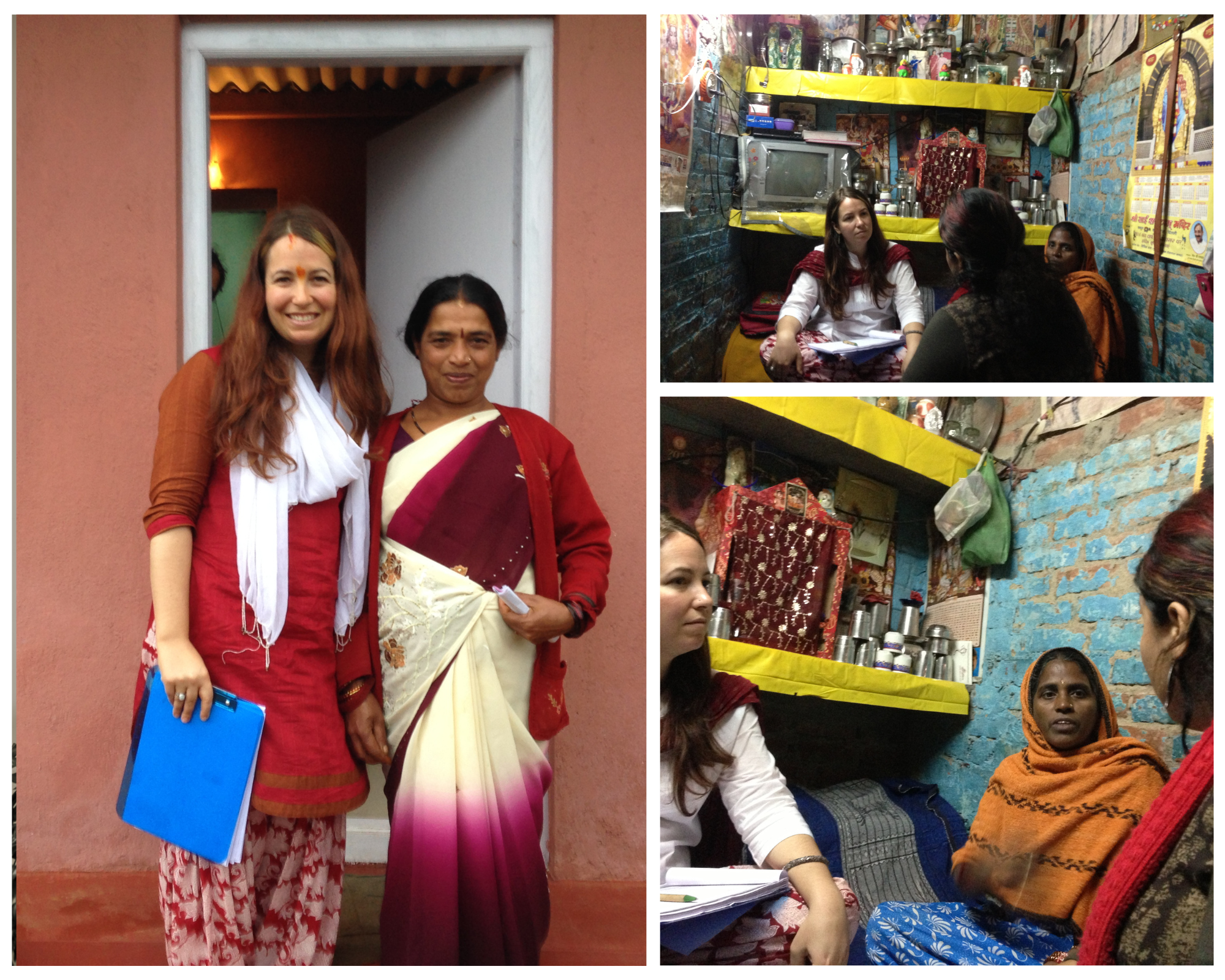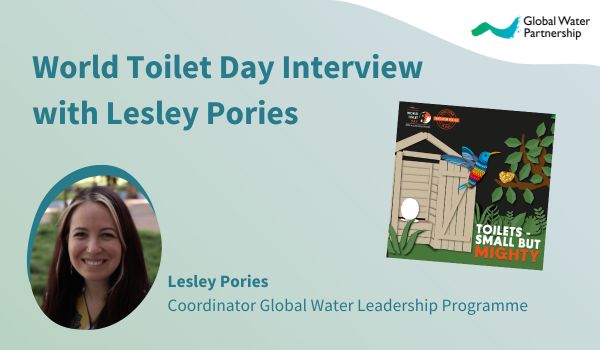Lesley Pories is the Global Coordinator for the Global Water Leadership Programme, a multiyear initiative funded by FCDO to promote climate resilience through integration of WRM and WASH policy on-the-ground. Lesley joined GWP after working for nearly a decade at Water.org, a non-profit organization known for promoting innovative financial solutions for household access to water and sanitation.
How has World Toilet Day evolved over the last 10 ten years?
Over the past decade, World Toilet Day has evolved within the WASH (Water, Sanitation, and Hygiene) sector, evolving from basic water and sanitation to a focus on safely managed water and sanitation systems. The influence of SDG 6.2 (sanitation) prompted a more sophisticated approach, that looks beyond the presence of a toilet itself and considers the entire waste management system. Themes expanded to include menstrual hygiene management and sanitation in healthcare facilities and schools, reflecting a progression from physical infrastructure to broader social systems.

Photos: From the left, Lesley in Coorg, Karnataka, India (2014). Two photos from the right, Lesley in Delhi, India (2014)
What has been the shift in themes and concerns?
In the past five years, discussions on menstrual hygiene management have gained visibility, addressing the need for safe spaces for women and girls, especially in places like India where safety concerns for going outside to defecate during dawn and dusk are prevalent. This discourse has expanded into dedicated work streams within organisations and academia, including “WASH in schools”, emphasizing the importance of ensuring that menstruating individuals can continue attending school.
Another growing conversation focuses on WASH in healthcare facilities. This has been present for a while but has gotten louder since COVID-19. The evolving dialogue highlights the necessity for pregnant women (and others) to have access to clean toilets and proper facilities at local health clinics when they go for routine or emergency care.
These advancements align with the ambition outlined in SDG6, a progression from the previous targets of the Millennium Development Goals (MDGs) where attention initially centred on the physical infrastructure around toilets to addressing broader social systems, including sanitary facilities in medical institutions and schools. The overarching goal is to integrate sanitation considerations into the full spectrum of social and economic development, ensuring the well-being and dignity of women and men across different life stages.
Tell us a little bit about this year’s theme – Accelerating Change.
The call for Accelerating Change responds to the urgency of achieving SDG6 targets by 2030, particularly in sanitation. The theme underscores the urgency emphasized at the UN Water Conference as we approach 2030, acknowledging a significant lag in achieving SDG6 targets, with sanitation notably behind. 3.5 billion people still live without safely managed sanitation, including 419 million who practise open defecation, compared against the 2.2 billion people who still live without safely managed drinking water (WHO/UNICEF, 2023). The sanitation challenge lies in the perception that while water is universally acknowledged as a must-have resource, sanitation initiatives face more contention, especially in regions where open (aka outdoor) defecation is accepted. Plus, let’s face it, there’s an image issue: everyone is happy to talk about water, but talking about s**t is a lot more taboo, delicate, and about as un-sexy as it gets. There's a call for accelerated action to bridge these gaps and meet the ambitious targets by 2030.
What do you think we should be prioritising when it comes to sanitation?
We need to recognize the need for increased investment and integrated approaches that look at treating WASH and water resource management together, moving beyond the current practice of keeping them separate. The Global Water Leadership (GWL) programme is addressing this by bringing ministries together in seven specific countries to identify key water management challenges and collaborate on response strategies. The aim is to integrate Water Resource Management (WRM) with WASH policies for results that are more climate resilient. Although achieving the 2030 targets is challenging, the GWL programme represents a successful step in practical integration, with exciting examples emerging like the increased participation of WRM experts in WASH sector meetings in Malawi, Uganda, and Nepal, as well as Central African Republic’s enthusiasm for this collaborative model prompting them to suggest a similar approach to upcoming water policy updates instead of relying on external consultants.

